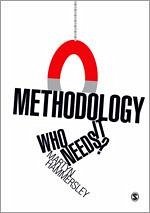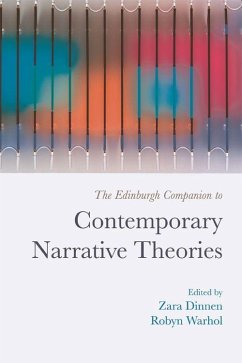Nicht lieferbar

Methodology: Who Needs It?
Versandkostenfrei!
Nicht lieferbar
The literature on social science methods and the issues surrounding them has grown massively and continues to increase. Yet many social scientists are ambivalent about methodology. For some, it plays a central, perhaps even an all-encompassing, role; while, for others, it is desirable only in small amounts, or indeed is regarded as an irrelevance, as a distraction from actually doing research. In this book, Hammersley argues that, in large part, this reflects and is part of a wider problem: the gradual decline of a previously influential academic model of inquiry. This has occurred as a result...
The literature on social science methods and the issues surrounding them has grown massively and continues to increase. Yet many social scientists are ambivalent about methodology. For some, it plays a central, perhaps even an all-encompassing, role; while, for others, it is desirable only in small amounts, or indeed is regarded as an irrelevance, as a distraction from actually doing research. In this book, Hammersley argues that, in large part, this reflects and is part of a wider problem: the gradual decline of a previously influential academic model of inquiry. This has occurred as a result of ideological challenges and the erosion of the institutional conditions that support academic work. He defends this model, spelling out the demands it places upon social scientists, and examining such issues as the proper role of methodology, the nature of objectivity, the false idea that social scientists should be intellectuals or social critics, the dialectic of academic discussion, the ethics of belief, and the limits of academic freedom. More broadly, he also questions the role of the social research within society and what it means to be a social scientist in the 21st century. Hammersley's book is engagingly written and controversial. It tackles the major issues of contemporary social research methodology head on and is an essential read for anyone with an interest in this field.








